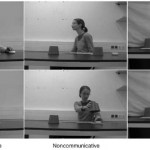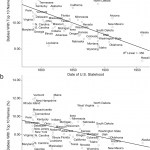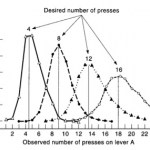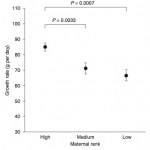Parenting and Families
What is learning?
Most psychologists (indeed, most people in general) would agree that learning is the acquisition of new knowledge, or new behaviors, or new skills. Hungarian psychologists Gergely and Csibra offer a deceptively simple description: "Learning involves acquiring new information and using it later when necessary." What this means is that learning requires the generalization of information to new situations - new people, objects, locations, or events. The problem is that any particular piece of information that a human or animal receives is situated within a particular context…
There's a very well-known experiment in developmental psychology called the "A-not-B task." The experiment goes something like this: you, the experimenter, are seated opposite a human infant. Within the reach of both you and the child are two boxes: box "A," and box "B." You hide a toy in "A," in full view of the infant. As expected, the infant reaches for "A" to retrieve the toy. You repeat the process several times. Each time you hide the toy in "A," and each time the infant reaches for "A" to find the toy. Experimental set-ups like this are extremely common in infant and animal studies.…
PsychBytes is an experiment: three recent findings in psychology, each explained in three paragraphs or less. Generally, these are papers that I wouldn't have otherwise covered in this blog. Please share your thoughts on this model in the comments. What works, and what doesn't? Would you like more PsychBytes in the future?
What's In A Name?
People who settle down and build a life in the frontier tend to be more individualistic, even if they started out with more interdependent values. Some features of the frontier life that would be attractive to an independent person are low population…
"When men wish to construct or support a theory, how they torture facts into their service!"
Even in 1852, psychologists like Charles Mackay, who wrote those words in his book Extraordinary Popular Delusions and the Madness of Crowds, were well aware of the dangers of confirmation bias.
I was reminded of the pervasiveness of this cognitive bias last weekend during a visit to GlaxoSmithKline's vaccine distribution facility in Marietta, Pennsylvania. Confirmation bias is as dangerous in 2010 as it was in 1852.
I was invited by David Wescott to join a group of bloggers for an event at GSK's…
In 1975, Edward Tronick and colleagues first presented the "still face experiment" to colleagues at the biennial meeting of the Society for Research in Child Development. He described a phenomenon in which an infant, after three minutes of "interaction" with a non-responsive expressionless mother, "rapidly sobers and grows wary. He makes repeated attempts to get the interaction into its usual reciprocal pattern. When these attempts fail, the infant withdraws [and] orients his face and body away from his mother with a withdrawn, hopeless facial expression." It remains one of the most…
Your humble narrator finds himself sick with a cold, so here's a post from the archives.
There is considerable research on how children interact with other children and with adults, and how child development can be influenced by those interactions. But research on children's interactions with non-human animals seem to be limited. Given how ubiquitous pets are in the homes of children (at least, in WEIRD cultures), it is somewhat surprising that there hasn't been more work on the way pet ownership might affect child development.
According to the US Humane Society:
There are approximately 77…
Figure 1: A mother hyena with her cubs.
Early developmental experiences can have significant implications for the growth, behavior, survival, and reproductive success of an individual. In many species, one of the most important factors that affects an individual's early development is the maternal environment. However, mothers not only provide an environment for their offspring, but also half of their genes, making it difficult to separate the effects of nature and nurture when investigating developmental outcomes in the offspring. Moreover, because male mammals usually disperse from the…
A fascinating new paper just came out in Nature Communications and I intend to blog it in the usual manner, but I thought I'd try something new first. Check it out:
The Research Question
...According to life history theory, mothers should invest in their offspring if this enhances offspring survival and fitness, and if the fitness benefit to mothers from increased offspring fitness exceeds the cost of their investment. Whether the maternal environment influences the fitness and reproductive value of sons is unknown in most mammals because male mammals usually disperse and, thus, few studies…
Have you heard about NCBI ROFL? It's a previously-independent blog that has been incorporated into "Discoblog," one of the blogs at Discover Magazine. What they do is find amusing or funny abstracts by searching Pubmed (which is run by the NCBI - National Center for Biomedical Information) and just post the abstracts. No commentary, no interpretation, just the text of the abstract. A lot of times I actually find the abstracts that they choose to post amusing. It is amusing that someone has decided to use superglue to remove objects that are stuck in peoples' ears, or that wooden kitchen…
Happy Father's Day, everyone!
I spent a lot of time today thinking back to why I started blogging in the first place, while I was at my parents house doing the other-than-science things that I love to do: playing with the dog, cooking, gardening. I realized that I've not done enough of that stuff lately.
I've only been seriously doing the blog thing (in the current format) since January, and I've now been here at Scienceblogs around two months, so it was time to reflect. The transition from Wordpress obscurity to Scienceblogs prominence happened relatively quickly for me, and I think it's a…








